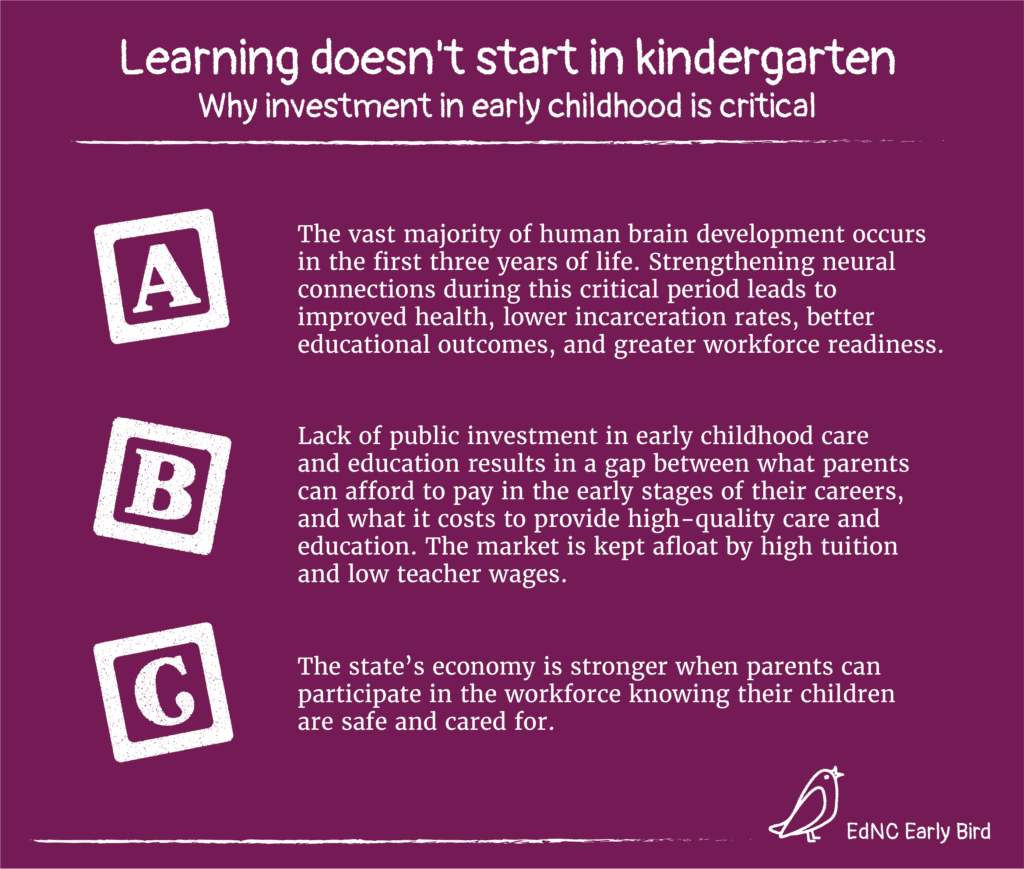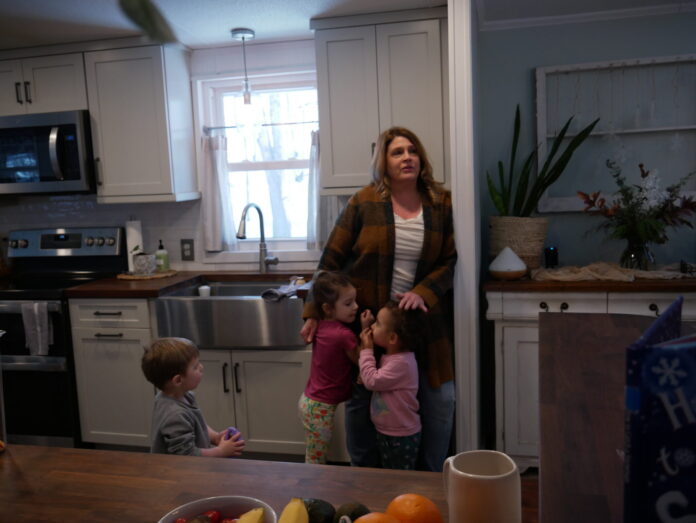Members of the public may weigh in through April 4 on proposed changes to how the state rates the quality of licensed child care facilities.
The state Child Care Commission’s proposed changes were published Monday in the North Carolina Register, marking the start of a required public comment period.
Licensed child care is rated on a scale of one to five stars through the state’s Quality Rating and Improvement System (QRIS) to promote high-quality care and learning and to give information to parents.
But what those stars mean is changing. The proposed rules open higher-quality ratings to different types of programs, focus more on interactions between caregivers and children and between programs and families, and place more value on educators’ experience and less on their educational requirements.
What is QRIS and why is it changing?
The state legislature passed a law in 2023 directing the commission to “modernize” its QRIS amid challenges in the field to hire and retain teachers and provide access to affordable care.
North Carolina in 1999 was one of the first states to create a QRIS to improve the quality of care and learning in licensed child care centers and family child care homes.
To be licensed, programs have to meet minimum health and safety standards. They are then rated on a scale of one to five stars. In the current system, those ratings are based on program standards (like materials and teacher-to-child ratios) and the education levels of teachers.
The commission has been working to reform the QRIS for almost two years, gathering input from providers, educators, parents, and others. In March 2024, as the law requires, it submitted to the legislature its recommendations, which were then passed into law. The commission included the following in the report:
“The Child Care Commission recognizes that modernizing the state’s QRIS system provides one small step towards improving the early care and education system in our state. It does not, and cannot, address the ongoing, critical issues of funding for child care access, affordability, compensation, and quality in the state of North Carolina.”

The commission left wiggle room to continue hashing out the specifics. It hosted video sessions explaining the proposed changes and answering questions throughout December 2024 and January 2025, which will be posted on this website, according to Division of Child Development and Early Education (DCDEE) staff.
Three new pathways
The proposed changes offer three pathways to receive stars instead of the current single process. And instead of programs receiving points that are then equated to a star level, the new system spells out what is required for each star level under each pathway.
The three pathways are program assessment, classroom and instructional quality, and accreditation and Head Start. DCDEE’s website includes one-pagers on each pathway.
Program assessment is the most similar to the current system in that it focuses on program and education standards, according to DCDEE staff. It incorporates a new version of the scale used to assess quality that focuses on interactions between children and caregivers instead of just materials and facilities.
The second pathway, classroom and instructional quality, focuses on programs’ use of curriculum and planning based on children’s needs. There are also coaching and training options for administrators to effectively implement curriculum.
The third pathway gives an automatic three-star-rated license to programs accredited by the following groups:
- National Early Childhood Program Accreditation (NECPA)
- National Association for Family Child Care (NAFCC)
- American Montessori Society (AMS)
- International Montessori Council (IMC)
These programs can receive more stars with the adoption of four- or five-star-level education standards.
The pathway gives an automatic five stars to programs accredited by the following groups:
- National Association for the Education of Young Children (NAEYC)
- National Accreditation Commission for Early Care and Education Programs (NAC)
- COGNIA, with early learning standards
- Head Start and Early Head Start
The education standards for different roles in a program are consistent no matter the pathway.
Go here for the education standards for each star level for lead teachers in centers, here for family child care operator standards, and here for center administrator standards. In a center setting, the new system requires that half of lead teachers and half of other staff meet the standards for that star level.
At the highest star level, lead teachers in a center and family child care providers have many options that include a combination of coursework completion and experience. An associate degree is not required.
There are also new standards for family and community engagement and continuous quality improvement, which are listed under “Resources” here.
How to give feedback
Members of the public can submit comments to the proposed rules through April 4 via email to julie.peck@dhhs.nc.gov or via mail to the following address: Julie Peck, 333 Six Forks Road, Raleigh, NC 27609.
An in-person public hearing will be held on March 26 at 11:30 a.m. at the same address.
The commission will review comments at an April meeting and then decide on any potential changes. If any substantial changes are made, another 60-day public comment period is required before the commission votes on the rule.




